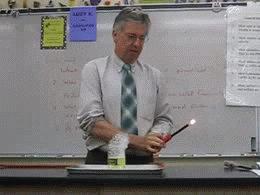Dr Shane Morris, the qualified person responsible for The Hydropothecary’s (THCX.V) marijuana facility operations, took some heat a few weeks ago when THCX announced it had been made aware of trace amounts of Myclobutanil in its weed products.
The amounts weren’t high, and weren’t indicative of the substance having been used recently, but myclobutanil emits hydrogen cyanide when ignited, so it’s not a nice additive to medical marijuana.
Other companies have been found with the substance in their grows, namely (and infamously) Organigram (OGI.V), which had to recall products all the way back to February of 2016, and Mettrum (now owned by Canopy (WEED.T)), employees of which have been accused of hiding the pesticide in the rafters of its offices to avoid detection by health inspectors. Aurora (ACB.V) also found the substance in testing, but only in Organigram-grown product, which it promptly sent back and refunded patients for. Peace Naturals had similar issues.
But Hydropothecary, a company we’ve accused of being dysfunctional at best, and ridiculous at worst, over the past few months, appears to have taken the title for coming cleanest – and actually investigating where the problems came from (Organigram still says it ‘doesn’t know’ how the substance came to be in its high tech, high security, highly regulated, organic system):
Most in-depth and transparent investigation to date in the #ACMPR Sorry this happened but will not again on my watch https://t.co/Snq6Hs2ui3
— Shane Morris (@DrShaneMorris) June 5, 2017
Based on the completion of the investigation, the Company is expanding the voluntary product recall announced on May 16, 2017. The expanded recall will include 19 lots of dried medical cannabis grown before September 16, 2016 that were supplied between July 15, 2015 and March 24, 2017.
[…]
“Based on the results of our investigation, it is clear that the low level presence of myclobutanil resulted from older production and appears to have been introduced to a small number of plants by a former employee without Hydropothecary’s knowledge or authorization. Current evidence also suggests that the myclobutanil application occurred before our new head grower and current QA team were in place. Finally, it is clear from testing results that no dried cannabis that was produced by our current grow team shows any sign of contamination at reporting levels set by Health Canada.
Now, obviously without details of the employee and how they came to that conclusion, we have to trust THCX that they’re telling the truth here, but the fact remains, they’re admitting to more than any other grower caught up in myclobutanil issues has to date.
And their solutions for ensuring it doesn’t happen again are more stringent than those announced by others, including:
- Only persons designated by Hydropothecary’s Quality Assurance (QA) department can apply any inputs to plants.
- A weekly inventory audit of spray containers will occur.
- All application containers will be replaced and no new input application containers can enter the secure growing area without written approval from the QA department.
- Monthly testing will be carried out on mother plants (by strain) to ensure on an ongoing basis that there is no presence of unapproved pesticides.
- No mothers will be used for production cuttings unless they have been individually tested for pesticides and approved for use by the QA Department.
- The central irrigation system will be caged to restrict access to only production staff who are designated by the QA Department to have access.
Hydropothecary have been criticized in the past, and fairly so, for having an origin story that played fast and loose. And I’ve put a lot of crap on them publicly for getting to the point where this news release is even necessary.
But credit where it’s due; this is how you deal with it.
— Chris Parry

